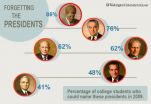Long-term complication rate low in nose job using patient's own rib cartilage
2014-11-27
(Press-News.org) Using a patient's own rib cartilage (autologous) for rhinoplasty appears to be associated with low rates of overall long-term complications and problems at the rib site where the cartilage is removed, according to a report published online by JAMA Facial Plastic Surgery.
Autologous rib cartilage is the preferred source of graft material for rhinoplasty because of its strength and ample volume. However, using rib cartilage for dorsal augmentation to build up the bridge of the nose has been criticized for its tendency to warp and issues at the cartilage donor site, such as pneumothorax (a collapsed lung) and postoperative scarring.
Jee Hye Wee, M.D., of the National Medical Center, Seoul, South Korea, and co-authors reviewed the available medical literature to evaluate complications associated with autologous rib cartilage and rhinoplasty.
Authors identified 10 studies involving 491 patients with an average follow-up across all studies of 33.3 moths. Results indicate that combined complication rates from the studies were 3.08 percent for warping, 0.22 percent for resorption, 0.56 percent for infection, 0.39 percent for displacement, 5.45 percent for hypertrophic chest scarring (keloids), 0 percent for pneumothorax and 14.07 percent for revision surgery.
"The overall long-term complications associated with autologous rib cartilage use in rhinoplasty were low. Because warping and hypertrophic chest scarring had relatively high rates, surgeons should pay more attention to reduce these complications. ... Future analysis should include studies with larger pools of patients, clearer definitions of complications and longer-term follow-up to obtain more reliable results," the study concludes.
INFORMATION:
JAMA Facial Plast Surg. Published online November 27, 2014. doi:10.1001/jamafacial.2014.914.
Available pre-embargo to the media at http://media.jamanetwork.com.
Please see the articles for additional information, including other authors, author contributions and affiliations, financial disclosures, funding and support, etc.
To contact corresponding author Hong-Ryul Jin, M.D., Ph.D., email hrjin@snu.ac.kr or doctorjin@daum.net
ELSE PRESS RELEASES FROM THIS DATE:
2014-11-27
The five-year survival rate for advanced-stage laryngeal cancer was higher than national levels in a small study at a single academic center performing a high rate of surgical therapy, including a total laryngectomy (removal of the voice box), to treat the disease, despite a national trend toward organ preservation, according to a report published online by JAMA Otolaryngology-Head & Neck Surgery.
The larynx is a common site of head and neck cancer with more than 10,000 cases annually. Over the past two decades, treatment for advanced-stage laryngeal cancer has shifted ...
2014-11-27
The way that tetanus neurotoxin enters nerve cells has been discovered by UCL scientists, who showed that this process can be blocked, offering a potential therapeutic intervention for tetanus. This newly-discovered pathway could be exploited to deliver therapies to the nervous system, opening up a whole new way to treat neurological disorders such as motor neuron disease and peripheral neuropathies.
The research in mice, published in Science and funded by the Medical Research Council, shows that proteins called nidogens that coat cell surfaces are key to tetanus neurotoxin ...
2014-11-27
PITTSBURGH--The rise of social media has seemed like a bonanza for behavioral scientists, who have eagerly tapped the social nets to quickly and cheaply gather huge amounts of data about what people are thinking and doing. But computer scientists at Carnegie Mellon University and McGill University warn that those massive datasets may be misleading.
In a perspective article published in the Nov. 28 issue of the journal Science, Carnegie Mellon's Juergen Pfeffer and McGill's Derek Ruths contend that scientists need to find ways of correcting for the biases inherent in the ...
2014-11-27
Walter and Eliza Hall Institute researchers have defined for the first time how the size of the immune response is controlled, using mathematical models to predict how powerfully immune cells respond to infection and disease.
The finding, published today in the journal Science, has implications for our understanding of how harmful or beneficial immune responses can be manipulated for better health.
The research team used mathematics and computer modeling to understand how complex signaling impacts the size of the response by key infection-fighting immune cells called ...
2014-11-27
Given that some climate change is already unavoidable--as just confirmed by the new IPCC report--investing in empowerment through universal education should be an essential element in climate change adaptation efforts, which so far focus mostly in engineering projects, according to a new study from the International Institute for Applied Systems Analysis (IIASA) published in the journal Science.
The article draws upon extensive analysis of natural disaster data for 167 countries over the past four decades as well as a number of studies carried out in individual countries ...
2014-11-27
Nora Besansky, O'Hara Professor of Biological Sciences at the University of Notre Dame and a member of the University's Eck Institute for Global Health, has led an international team of scientists in sequencing the genomes of 16 Anopheles mosquito species from around the world.
Anopheles mosquitoes are responsible for transmitting human malaria parasites that cause an estimated 200 million cases and more than 600 thousand deaths each year. However, of the almost 500 different Anopheles species, only a few dozen can carry the parasite and only a handful of species are responsible ...
2014-11-27
Certain species of mosquitoes are genetically better at transmitting malaria than even some of their close cousins, according to a multi-institutional team of researchers including Virginia Tech scientists.
Of about 450 different species of mosquitoes in the Anopheles genus, only about 60 can transmit the Plasmodium malaria parasite that is harmful to people. The team chose 16 mosquito species that are currently found in Africa, Asia, Europe, and Latin America, but evolved from the same ancestor approximately 100 million years ago.
Today, the 16 species have varying ...
2014-11-27
A growing number of academic researchers are mining social media data to learn about both online and offline human behavior. In recent years, studies have claimed the ability to predict everything from summer blockbusters to fluctuations in the stock market.
But mounting evidence of flaws in many of these studies points to a need for researchers to be wary of serious pitfalls that arise when working with huge social media data sets, according to computer scientists at McGill University in Montreal and Carnegie Mellon University in Pittsburgh.
Such erroneous results ...
2014-11-27
American presidents spend their time in office trying to carve out a prominent place in the nation's collective memory, but most are destined to be forgotten within 50-to-100 years of their serving as president, suggests a study on presidential name recall released today by the journal Science.
"By the year 2060, Americans will probably remember as much about the 39th and 40th presidents, Jimmy Carter and Ronald Reagan, as they now remember about our 13th president, Millard Fillmore," predicts study co-author Henry L. Roediger III, PhD, a human memory expert at Washington ...
2014-11-27
High-tech genomics and traditional Chinese medicine come together as researchers identify the genes responsible for the intense bitter taste of wild cucumbers. Taming this bitterness made cucumber, pumpkin and their relatives into popular foods, but the same compounds also have potential to treat cancer and diabetes.
"You don't eat wild cucumber, unless you want to use it as a purgative," said William Lucas, professor of plant biology at the University of California, Davis and coauthor on the paper to be published Nov. 28 in the journal Science.
That bitter flavor in ...
LAST 30 PRESS RELEASES:
[Press-News.org] Long-term complication rate low in nose job using patient's own rib cartilage

